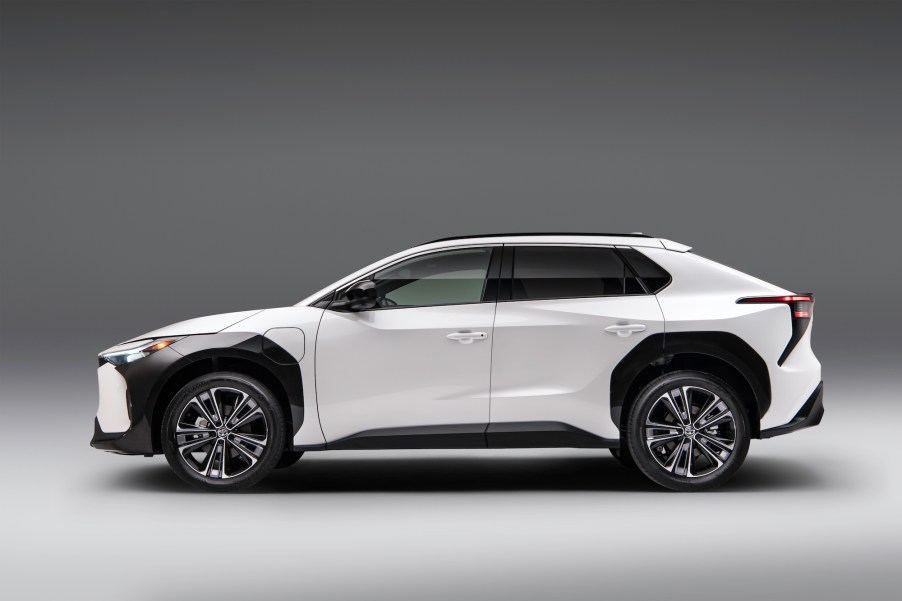
The Toyota bZ4X Isn’t Eligible for the EV Tax Credit Because Toyota Wasted Them All on Plug-In Hybrids (PHEVs)
Toyota recently released its first mass-market EV, the bZ4X, after a few other less successful experiments in the past. Nevertheless, those looking to buy the new Toyota bZ4X won’t be able to access the EV tax credit. That’s because Toyota has already used its available tax credits on hybrid and plug-in hybrid (PHEV) models.
What is the federal EV tax credit?

The federal EV tax credit is designed to incentivize the purchase of electric vehicles. The program allows car buyers who buy specific new EVs from 2010 onward to claim up to a $7,500 tax credit for their purchase.
Of course, not all new EVs qualify for this tax incentive, so buyers must verify that their new vehicle is eligible before plunking down a wad of cash in the hopes of claiming a tax credit. There is a limit of 200,000 sales per car manufacturer that can qualify for the incentive. Once a manufacturer has sold 200,000 EVs, its products will no longer come with the possibility of a credit.
We should also note that battery capacity is another consideration when determining what electric vehicles are eligible for the tax credit. The credit applies to plug-in vehicles with more than 5kWh of battery storage and offers $500 per kWh up to the maximum of $7,500.
Toyota has already used all of its EV tax credits
Given the limit of 200,000 vehicles per manufacturer that can be used to claim a tax credit, some car companies such as Toyota are finding that they can no longer lure buyers with this incentive. That’s because their popular EVs and plug-in hybrids have already reached the 200,000-unit limit.
According to Consumer Reports, Toyota is actually the third manufacturer to reach this limit, after Tesla and General Motors. Toyota reached this limit earlier than some manufacturers primarily due to earlier sales of its popular plug-in hybrid models, such as the Toyota Prius Prime and Toyota RAV4 Prime.
This means that if you’re hoping to buy a Toyota EV and receive the federal tax credit, you’d better hurry. The phaseout of the credit is expected to start as early as October. Toyota and other manufacturers are lobbying Congress to extend the credit beyond 200,000 units. Otherwise, consumers will have fewer and fewer incentives to opt for EVs as time goes on. And that lack of EV options will clearly work against the government’s goal of fighting climate change partly through the adoption of more EV transportation.
These other Toyota models also helped deplete Toyota’s EV tax credits
Of course, Toyota’s EV tax credits didn’t only get depleted from sales of its most popular models. Other now discontinued models contributed to those sales as well. These lesser-known vehicles include the Prius Plug-In and short-lived RAV4 EV. According to Elektrec, the RAV4 EV was sold in the early 2010s but did not last long, getting discontinued after selling only around 2,500 units. Similarly, the low-range Plug-In Prius also qualified for a portion of the tax credit, or $2,500, even though its battery was barely eligible.
Sales of these vehicles and their more popular cousins have left Toyota without much room to market its new all-electric bZ4X by touting the possibility of the federal tax incentive. Sales of the vehicle have struggled thus far, with Toyota expecting to sell only around 7,000 units this year. Sales have also not been helped by a recall on the vehicle related to incidents in which its wheels fell off.
All in all, Toyota likely hopes that renewed Congressional action will allow it to boost sales of its first foray into the BEV market, the bZ4X.


